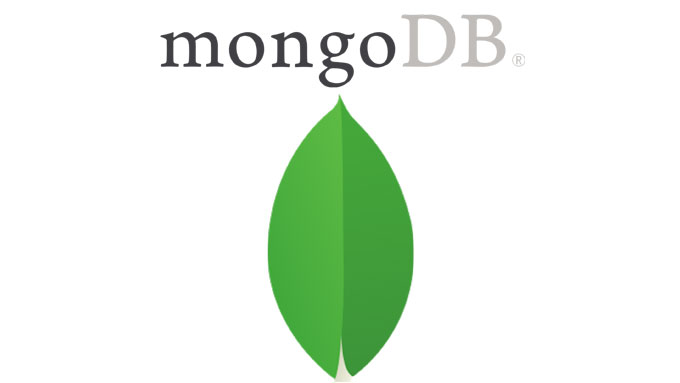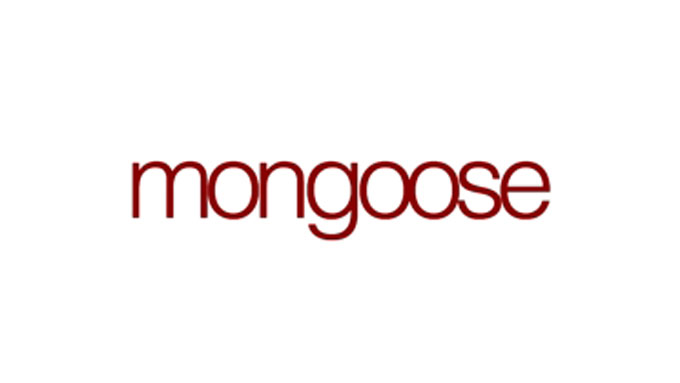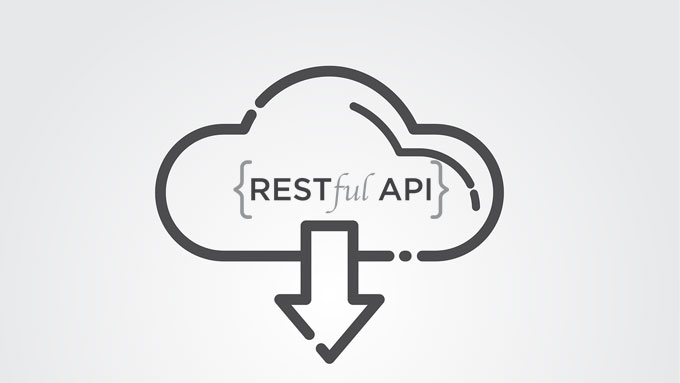 Take This Course Now For 95% Off!
Take This Course Now For 95% Off!
This Node.js, Express, MongoDB & More: The Complete Bootcamp 2020 course will get you up and working with NodeJS, Express, MongoDB Mongoose, NodeJS security, payments with stripe, and more quickly, and teach you how to leverage their power for building and optimizing real-world REStful API and web apps. If you are interested in learning Node.js from the ground up, then this course is for you. If you are looking to master the modern and cutting-edge back-end development skills and techniques, then this course is for you. If you are wondering how to build very fast and amazingly scalable back-end applications, then this course is for you.
Tips: You can take this Node.js, Express, MongoDB & More: The Complete Bootcamp 2020 course for up to 95% off using the verified Udemy coupon here. Click on the above ‘Take This Course Now For 95% Off!’ button to grab the deal immediately.
This Node.js, Express, MongoDB & More: The Complete Bootcamp 2020 course covers the fundamentals of back-end development with Node.js, Express, MongoDB and Mongoose (MongoDB JS driver). You will learn everything you need to build your own back-end applications using Node.js, Express and MongoDB. We will start by mastering the fundamentals of Node.js, like what Node.js is, how Node.js works, how to create an easy web server, how to build a very easy API, how to build templates using HTML, what the NPM is and more. These basics will be taught in an easy-to-understand way that will help learners better understand Node.js and build a solid foundations. In addition to these basics, you will also learn and work with useful Express tool, learn to build the Natours API. You will work with MongoDB, Mongoose, and handle errors with Express, as well as many other useful skills related with authentication, authorization and security.
You will also learn more things about security such as encryption, user rules and permissions, data sanitization, rate limiting, and more. You will take part in a huge project to practice what you’ve learnt timely. Once joined, you need to complete 42 hours of on-demand video, 1 article and 277 lectures at your own schedule. After the completion of this Node.js, Express, MongoDB & More: The Complete Bootcamp 2020 course, you will understand how to best use Node.js and the modern back-end development skills and techniques, you will be able to build and deploy your own modern back-end applications using the programming language of NodejS. You will be more proficient in working with all back-end development related technologies. If you are willing to go deep into NodeJS and modern back-end development but don’t know how to get started, we strongly recommend you learn the Node.js, Express, MongoDB & More: The Complete Bootcamp 2020 course on Udemy.
Requirements:
To learn this Node.js, Express, MongoDB & More: The Complete Bootcamp 2020 course requires learners know the basics of JavaScript because this course needs a certain level of asynchronous JavaScript. But no prior experience with Node.js required. If you are a JavaScript developer and want to switch to Node.js, then here is a right place to get started. If you are capable of using HTML, then this will be a plus but not necessary. Besides that, learners should have a computer with system either Windows, macOS or Linux.
Targets:
This Node.js, Express, MongoDB & More: The Complete Bootcamp 2020 course is perfect for those back-end developers who want to start a depth learning of Node.js and all the related technologies. Whoever you are, front-end developers, JavaScript programmers, absolute newcomers, or experienced node developers who want to pick up the newest skills, this course is perfect for you. Take this course if you want to master more back-end development skills.

The Node.js, Express, MongoDB & More: The Complete Bootcamp 2020 course comes designed with 227 lectures in total, each one is carefully crafted for helping students better understand and pick up the knowledge. Next, we’ll look at on these lectures, see what you will learn from each lecture.
3 lectures will introduce the course structure and projects
20 lectures will teach the basics of NodeJS and NPM. You will learn what NodeJS is and how it works. You will also learn what NPM is and how to use it professionally.
5 lectures will introduce to the modern back-end web development, you will know the difference between front-end and back-end web development. You will also know the difference between static and dynamic and API.
11 lectures will explain how Node.js works and how to master it like an expert. You will get a look behind the scenes. Besides that, you will learn more things about Node, V8, C++, event loop, and steams.
7 lectures will give you an optional module for the knowledge of Asynchronous JavaScript. You will learn to build and consume promises and how to return values from Async functions.
22 lectures will teach you how to build the Natours API. In this part, you will learn what Express actually is and how to work with it effortlessly. You will get to learn how to install Postman, how to setup Express, how to design APIs and RESTful API, how to handle with POS, PATCH, and DELETE requests, how to respond to URK parameters, how to create middleware, how to chain several middleware functions, how to sever static files and how to set up ESlint and prettier.
12 lectures will help you learn more about MongoDB. You will understand what MongoDB is and how to work with it on Windows and MacOS. You will learn more about CRUD skills, like how to create, query, update and delete documents, how to use Atlas to create a hosted database, how to connect to the hosted database and more.
28 lectures will teach about using MongoDB with Mongoose. In this part of the Node.js, Express, MongoDB & More: The Complete Bootcamp 2020 course, you will know what Mongoose is and how to use it for CRUD operations. You will learn more about the advanced features of Mongoose.
14 lectures are all things about error handling using Express. You will learn how to utilize the knowledge of Express to debug Node.js, catch errors and handle Mongoose validation errors.
23 lectures will help you go deep into the world of authentication, authorization and security. In this part, you will learn how to create users and manage passwords, yo will learn how to protect tour routes and set up advanced postman. You will learn to master the user roles and permission, you will learn password reset functionality, you will learn to delete uses and take part in the best security practices.
27 lectures will teach you about modelling data and the advanced features of Mongoose. You will have a good understand of MongoDB data modelling, data model, child referencing, parent referencing, tours and reviews, nested routes, factory functions, authentication, authorization, use data, average rating calculations, and more.
24 lectures are all things about how to use pug templates for sever-side rendering. You will know the difference between server-side and client-side rendering. You will learn how to create a pug and base template. You will learn how to build the tour page, you will learn how to work with Mapbox, you will learn how to login in users using API, and you will also learn how to render error pages and update user data with API.
20 lectures will give you a concentrated crash tutorial for mastering payments, emails, and file uploads. In this part of the Node.js, Express, MongoDB & More: The Complete Bootcamp 2020 course, you will learn how to upload images, how to configure Multer, how to save and resize images, how to build a complex email handler, how to make Credit Card payment with strip, How to create new bookings, and how to finish the bookings API.
10 lectures help you know how to set up git and deployment. You will learn to set up Git and GitHub, and how to deploy your apps to Heroku.
1 lecture is to sum up the course.
In this Node.js, Express, MongoDB & More: The Complete Bootcamp 2020 course you will learn what NodeJS us and why use it. Those platforms which work on the client-server relationship need a server-side application for performing the mid tasks fluently. The operations which are performed by the server in a client-server relationship in a computer network are known as server-side operations.

Using standard protocols for maintaining client and server programs which are commercial web servers and web browsers. Programmers also customize or write their server as per the requirement of the server, client and communications protocol. One of the cross-platform environment is Node.js. It helps the server-side applications to develop.
Node.js is an open-source, cross-platform which is used for the development of server-side and networking applications. The format in which Node.js is written in JavaScript. It runs within the Node.js runtime in the different operating systems. Those operating systems are OS X, Microsoft Windows, and Linux. These are also being used in different sites which has core data-driven operations.
Node.js is perfect for data-intensive real-time applications that work among distributed devices. Moreover, the attributes like event-driven and non-blocking I/O model make it lightweight and efficient for those operating system. To learn more about it, this Node.js, Express, MongoDB & More: The Complete Bootcamp 2020 course will help you.
Usage of Node.js
These are the following two most important characteristics which enable this for usage by different applications.
Any technological software bound application has input-output operations. It needs regular computation which is determined by the time spent waiting for that input/output operations to complete.
These is the applications which directly sends the data to the user as it arrives. Node.js helps these applications to perform those I/O operations in a specified manner.
These are two vital uses of the Node.js, which makes it very efficient and productive for those applications which depends upon I/O operations. This open-source platform plays a vital role in enabling the applications to perform its core function.
In this Node.js, Express, MongoDB & More: The Complete Bootcamp 2020 course, you will go deep into Express.
For developing an application, we use a collection of programs which is known as a framework. It is a pre-written library which consists of codes. These are being used by developers to enhance their applications. One of those frameworks is the express framework.
It is simply a web application framework for node.js. It is of free in reach and open-source software which is licensed under MIT. The core function of this is to design and build web applications and APIs. It is considered a default framework for node.js.
It provides a robust collection of features that are being used for developing web and applications. It is also used for the development of mobile applications. It is also considered as a facilitator for node-based web applications.
Core applications
These are some of the standard features of this Express framework:
Specific attributes which use this framework
Keeping the vivid usage of this framework, it acts as an efficient framework for the Node.js. The efficiency of Node.js increases substantially with the features of this framework.
This Node.js, Express, MongoDB & More: The Complete Bootcamp 2020 course will teach you the knowledge of MongoDB. There is always a need for a cross-platform accumulation framework. MongoDB is a cross-platform which provides different attributes such as high performance, high availability and easy scalability. It works on the crude concept of collection and documentation.

Before understanding the functioning of MongoDB we have to understand some simple concepts which are Database, Collection, and document.
The physical container for collections is known as a database. Each file system has its own set of files which is provided by the database. MongoDB contains multiple databases which makes it very vivid.
The set of MongoDB is known as a collection. It is the same as the RDBMS table. A collection is part of a singular database. It does not perform its core structure. The collection documents can have various fields. All documents are intertwined with each other.
The set of key-value pairs is known as a document. These documents have various structures. Changing structure means that these documents in the same collection do not use the same set of fields. It contains different types of data. To learn all things about MongoDB, this Node.js, Express, MongoDB & More: The Complete Bootcamp 2020 course will be a good start.
Why Use MongoDB?
Where to Use MongoDB?
This MongoDB is used for that multi-purpose software which stores a hefty amount of data such as Big Data. The content management and delivery system also use this MongoDB due to its rich exposure. It also provides the mobile and social infrastructure which is quite efficient for technology upliftment. Moreover, it has also been used widely for user data management.
This Node.js, Express, MongoDB & More: The Complete Bootcamp 2020 course will also teach you what Mongoose is and how to work with it. In computer language or Node.js, the functions like TCP, HTTP client, and server, WebSocket client and server, MQTT client performed by an embedded web server. That web-server or network library is known as Mongoose.

This acts as a web server due to its small size. It is being licensed under commercial licenses. It is available under GPL version2.
It is used for document modelling. We create a model and then the production of documents takes place. Finally, all the processing is done in those documents.
It is built upon an embedded library which is used for the need for RESTful services. It is a cross-platform web server that can be used on windows, Mac and other operating systems. It can be embedded in other programs with the help of an application programming interface. It is written in C programming language.
Functions of Mongoose
The core functions of mongoose include these following attributes:
The core functions of Mongoose specifies its complete structure of working. This is an efficient web-server that can be used by the different OS for data accumulation. It enables first the making of documents.
Ultimately, this MongoDB provides various structural functions for different data hubs. Usage of this database id very efficient.
In this Node.js, Express, MongoDB & More: The Complete Bootcamp 2020 course, you will be more confident in building RESTful APIs. REST stands for Representational State Transfer. It is a web standard-based structural architecture that uses HTTP. The core functioning of RESTful API consists of every subsidiary components which is a resource and all the resources which are accessed by the use of HTTP standard protocols.

It was introduced by Roy Fielding in the year 2000.
Core functions
The core function of this is to providing access to various resources and modifying the resources using the HTTP protocol. Each resource is identified individually as URLs or global IDs. It uses various representations to represent a various resource of text. Those resources are JSON, XML. Being JSON as the most popular it provides a resource to them.
The frameworks which enable to build fast HTTP services for various clients is known as ASP.NET web API. It also provides various HTTP services to browsers and mobile devices which enable the core functioning. This is the best platform for constructing RESTful applications in the .NET Framework, which is quite efficient than other frameworks.
HTTP methods
There are the various set of HTTP methods which enables to perform the client-based works. The clients may be operating systems or mobile devices or different browsers. The clear structure of this API enables it to perform numerous tasks for these.
There are four fundamental HTTP methods on which the whole work is executed in REST-based architecture, seen as followed. To learn all things about building RESTful APIs, you can learn from the Node.js, Express, MongoDB & More: The Complete Bootcamp 2020 tutorial.
It is the HTTP method that is used to provide read-only access to a resource implementation in this REST-based API.
It is used to create a new resource. The simultaneous and gradual step after the GET HTTP method.
It is used to remove a resource. With the use of this method, the user can eradicate the unnecessary from the source code.
It’s an existing resource or enables to create a new resource.
The core functioning of RESTful API depends upon HTTP methods only.
Discover more relevant courses here:
The Node.js, Express, MongoDB & More: The Complete Bootcamp 2020 course is intended for teaching students how to master NodeJS and become an expert in developing real-world RESTful APIs and web apps. This course is top-rated on Udemy with an average 4.8 rating, nearly all students who’ve enrolled in the course are very satisfied with what they learnt. Thus, if you are looking to learn both NodeJS programming skill and back-end development, this course is for you. Enroll in the course today, you will get a BIG discount using coupon.
Tips: Refer to an easy video guide on how to get the 95% off Node.js, Express, MongoDB & More: The Complete Bootcamp 2020 coupon here.